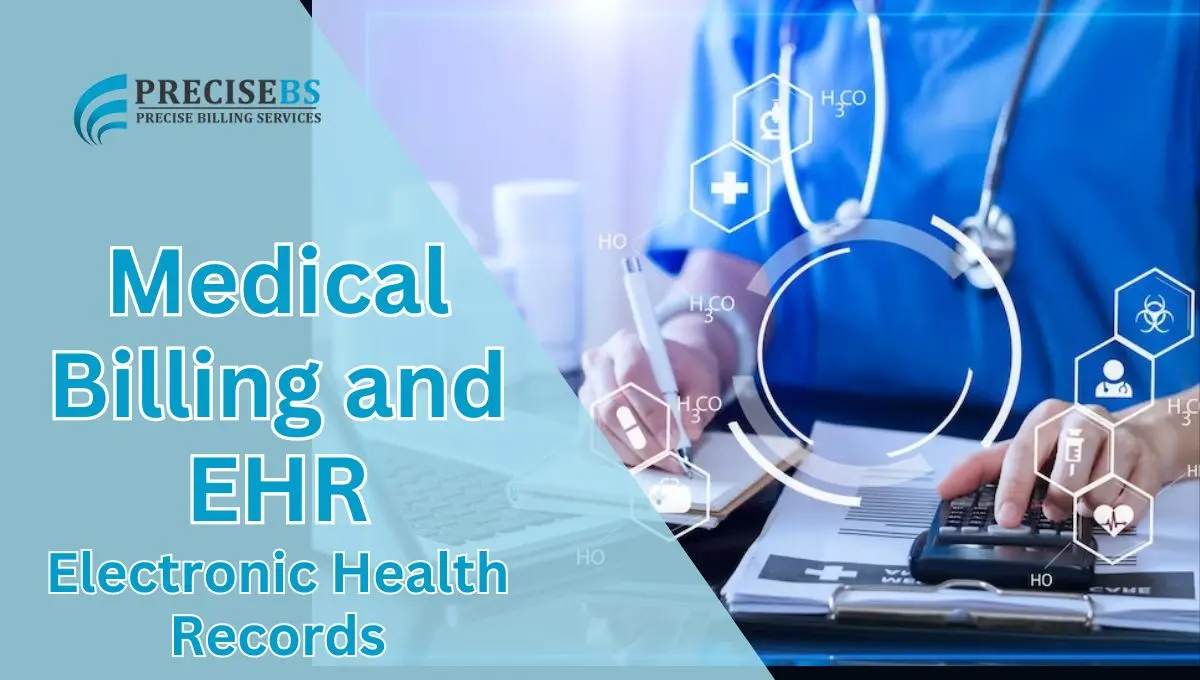In the dynamic realm of healthcare, optimizing income streams is crucial for the sustainability of medical practices. Central to this goal are Medical Billing and Electronic Health Records (EHR), two elements that, when harmoniously integrated, can significantly bolster a practice’s financial health.
Medical Billing and EHR: Streamlining Healthcare Management
Demystifying Medical Billing
Medical billing, a cornerstone of healthcare revenue management, involves processing and submitting claims to insurance companies to secure payment for services provided. This field has seen a monumental shift from paper-based methods to sophisticated digital systems, enhancing efficiency and accuracy.
Electronic Health Records (EHR) Explained
EHRs are digital versions of patients’ medical histories. They serve as a centralized repository of patient data, accessible to authorized healthcare providers. EHRs streamline patient care processes, making them a valuable asset in modern healthcare management.
Streamlining Billing Processes
The integration of medical billing with EHR systems simplifies administrative workflows. This synergy minimizes the chances of billing errors and delays, which are often the bane of efficient revenue collection.
Optimizing Revenue Cycle Management
An effective revenue cycle management strategy, bolstered by EHR and medical billing integration, ensures swift and accurate billing. This approach helps in expediting the payment process, which is essential for maintaining a healthy cash flow.
Ensuring Accuracy and Compliance
Accurate billing is non-negotiable in healthcare. Integrated EHR systems aid in maintaining precision in medical billing, reducing claim denials. They also ensure compliance with evolving healthcare regulations, mitigating legal risks.
Boosting Patient Engagement
Enhanced patient engagement is a direct outcome of employing EHR systems. They offer patients better access to their health records and facilitate improved communication with providers, fostering trust and loyalty, which are vital for revenue growth.
Cost Efficiency and Profitability
Implementing integrated Medical Billing and EHR systems can lead to significant cost savings. By automating various tasks, these systems reduce operational expenses, positively impacting the practice’s profitability.
Leveraging Data Analytics
Data analytics, a feature of modern EHR systems, empowers practices to make informed decisions. These insights aid in tracking financial performance and identifying areas for improvement, contributing to income optimization.
Navigating Challenges
Adopting new systems comes with challenges, including technical integration and staff training. Careful consideration and selection of the appropriate system tailored to the practice’s needs are crucial for successful implementation.
Real-World Impact
Numerous case studies demonstrate the positive financial impact of integrating medical billing with EHR. These success stories offer practical insights and underscore the potential for income growth.
Related Articles
Conclusion
To conclude, the synergistic relationship between medical billing and EHR systems is a potent tool for increasing a practice’s income. By improving efficiency, patient satisfaction, and data-driven decision-making, these systems are pivotal in enhancing the financial health of medical practices. As the healthcare sector continues to evolve, embracing these technological advancements will be key to thriving in a competitive landscape.
Frequently Asked Questions
-
How does integrating medical billing with EHR enhance practice income?
Integration streamlines billing processes, reduces errors, accelerates payment cycles, and improves patient satisfaction, collectively leading to increased practice income.
-
What are the primary benefits of EHR in healthcare?
EHRs provide centralized, real-time patient data, enhance care quality, improve patient-provider communication, and facilitate better healthcare management.
-
Can EHR systems reduce operational costs?
Yes, by automating administrative tasks and reducing paperwork, EHR systems can significantly lower operational costs, contributing to greater profitability.
-
What challenges might arise with EHR implementation?
Challenges include ensuring system compatibility, managing initial costs, and providing adequate training to staff, all of which are critical for successful EHR implementation.
-
Are there real-life examples of income growth due to these systems?
Numerous case studies illustrate how practices have seen tangible income growth by integrating medical billing with EHR, highlighting the effectiveness of these systems.

